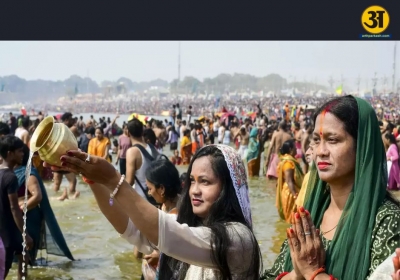
Lata Mangeshkar, the "nightingale of India," died on Sunday in Mumbai
Lata Mangeshkar, the legendary singer has died
Lata Mangeshkar, the "nightingale of India," died on Sunday in Mumbai after giving her voice to Indian films for almost 70 years. She had lived to be 92 years old.
Outside Breach Candy Hospital, Dr. Pratit Samdani told reporters."Lata Di died at 8:12 a.m. due to multi-organ failure after over 28 days of Covid-19 diagnosis."
Innumerable Indian films featured Mangeshkar as a playback vocalist, supplying music to be mimed by actors. Her sweet voice, which could easily reach a high pitch, became a staple in practically every Indian household.
Narendra Modi, India's prime minister, said he was "anguished beyond words."
"The kind and caring Lata Didi (sister) has left us. She leaves a void in our nation that cannot be filled," he wrote on Twitter Sunday. "The coming generations will remember her as a stalwart of Indian culture, whose melodious voice had an unparalleled ability to mesmerise people.”
For the late musician, the Indian government has declared two days of national mourning. The national flag will be flown at half-mast from Sunday through Monday, according to a statement released by India's Ministry of Home Affairs on Sunday.
The Ministry says, "There will be no official entertainment."
On Sunday, Bollywood actors and politicians paid tribute to the late actor.
"How can one forget such a voice! Deeply saddened by the passing away of Lata Mangeshkar Ji, my sincere condolences, and prayers," Akshay Kumar said in a tweet on Twitter.
In a tweet, Rahul Gandhi, a member of the opposition Congress party, expressed his condolences. "She remained the most beloved voice of India for many decades," he said. "Her golden voice is immortal and will continue to echo in the hearts of her fans."
Mangeshkar began studying classical Indian music with her father when she was five years old. Deenanath Mangeshkar, her father, was a well-known classical vocalist and theatre actor. His daughter began her singing career by performing in his musical productions.
Mangeshkar made her first public appearance at the age of nine and recorded her first song at the age of thirteen. Her father died a month after she recorded her first song. Mangeshkar began working in the Indian film industry to support her mother and four younger siblings. Music directors first dismissed her, claiming that her voice was too thin and harsh. She had already lent her voice to a half-dozen films by 1948.
Mangeshkar was born in Madhya Pradesh on September 28, 1929. She was introduced to various composers, including Aman Ali Khan, who mentored and coached her for several years, thanks to her father's status in the classical music world.
Mangeshkar's career took off after she delivered a string of songs, making her one of the most in-demand playback singers in the country. In Indian films, it is normal practice for the music director to include eight to ten songs that play in time with the plot.
Singers like Mangeshkar were recruited to pre-record the songs, to which the actors would lip sync or a sequence would be shown on screen. Unlike in Hollywood, where performers produce albums and the music is acquired for a certain film, in India, singers create music and lyrics exclusively for the film.
Her big break came in 1949 with the film "Mahal," for which she sang the infamous "Aayega Aanewala" song. In 1958, she received her first Filmfare award for the song "Aaja Re Pardesi" from the film "Madhumati," and in 1973, she earned her first national film award for "Beeti Na Bitai" from the film "Parichay."
She was given the Bharat Ratna, India's highest civilian accolade, in 2001. In 1999, she was also given the Padma Vibushan, India's second-highest civilian award. Mangeshkar has performed in over five languages for various Indian film industries.
Mangeshkar mentioned one regret in a 2009 interview with a news program.
"I was very keen to become a classical singer. But when I began work, I had so many responsibilities that I could not pay attention to classical music. I did not have time to practice," she said.
Mangeshkar has appeared in almost 1,300 films and has sung over 25,000 songs. "Eternal Sunshine of the Spotless Mind," "Life of Pi," "Lion," and "The Hundred-Foot Journey" have all featured her music.
Mangeshkar has gradually decreased her workload over the last two decades to just a couple of films per year. She avoided the spotlight whenever possible, preferring to keep her personal life private.
Mangeshkar was once asked in an interview what factors contributed to her success as a playback singer.
"Natural talent contributes about 75% and the rest is hard work, practice, and eating-drinking restrictions," she said. "I don't do the restrictions ... I have just been singing all my life."





